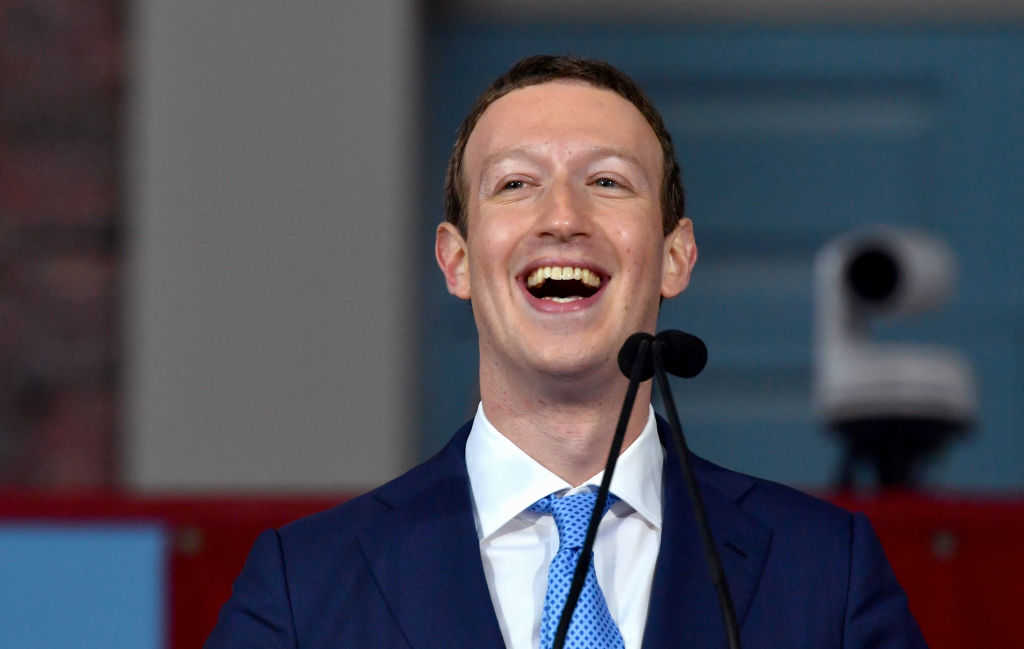Facebook CEO Mark Zuckerberg underwent hours of inquiry recently from Congressional lawmakers eager to get to the bottom of how the private data of nearly 87 million Facebook users was harvested by Cambridge Analytica, a political research firm. The revelations have fueled outrage over weak online privacy controls and even possible election meddling implications.
Still, the hearings provided a stage for another critical issue: targeted censorship of conservative voices by tech companies.
Texas Sen. Ted Cruz took Zuckerberg to task for what he saw as Facebook’s “pervasive pattern of bias and political censorship” and pointedly asked if Zuckerberg considered his company to be a neutral public forum.
The media tycoon vaguely amended Facebook’s description as a “platform for all ideas.”
Zuckerberg’s definition of “all ideas” clearly does not include those of Republican social influencers Diamond and Silk. Facebook labeled the pro-President Donald Trump vloggers as “unsafe to the community” and has censored some of their content. Facebook has since backpedaled, with Zuckerberg himself acknowledging the kerfuffle as a “mistake.”
How is it that Facebook algorithms deem the political views of these conservative women as unsafe for the community, yet somehow neglect to block any content from liberal users? Cruz pressed Zuckerberg to name any liberal groups he knew had also been censored. Zuckerberg was conspicuously unable to answer.
Unfortunately, this story is not unique and Facebook is not the only player in this one-sided censorship scheme.
Google and its subsidiary YouTube are currently being sued for political bias by the conservative educational platform Prager University.
Over 40 PragerU videos have been censored by Google on grounds of “inappropriate” messaging to younger audiences. However, these conservative clips have no mature content, such as profanity or nudity, and completely comply with YouTube’s Terms of Use and Community Guidelines. This leads us to no other conclusion than that PragerU is being stifled because of its political perspective.
Both Google and Facebook publically identify as free speech defenders, yet, as one of PragerU’s lawyers puts it, they behave as “political gag mechanisms” for conservative principles. To date, PragerU’s petition to push YouTube to stop blocking its content has over 473,819 signatures.
Beyond an obvious political agenda, the biased censorship practiced by these so-called neutral public forums threatens the very freedom guaranteed by the First Amendment. Americans of all political stripes should be alarmed by these moves to silence opposing viewpoints.
Former Supreme Court Justice Louis Brandeis said, “Fear of serious injury alone cannot justify oppression of free speech and assembly. Men feared witches and burnt women. It is the function of speech to free men from the bondage of irrational fears.”
In other words, our fear of what others believe does not justify seeking to shut them up. There is a natural balance that comes when voices from all points on the spectrum are allowed to, without fear of retribution, share their beliefs. It is when one party actively works to silence another that the balance is disturbed.
Thomas Jefferson, in his first inaugural address, encouraged citizens to respond to opposing views with reason, and to let poor or wrong ideas serve as “monuments of the safety” in which they were expressed.
Tech companies like Facebook would do well to follow Jefferson’s appeal. How much more powerful would their vast platforms be if they were seen as safe, impartial outlets that facilitated the free expression of reasoned thought?
The Cambridge Analytica developments revealed that we must think proactively about how to guard personal data in the digital age. We need smart regulations and laws to protect us and prevent abuses of our information. At the same time, tech giants must be held accountable to protect the First Amendment rights of all of their users.
For this reason, Americans must exercise their most powerful avenue of free speech: voting. We must elect representatives who will defend our first right — the freedom to think and believe as we choose. Keep this in mind as state primary elections take place and as the 2018 midterms approach. Any political hopeful unwilling to defend freedom of speech doesn’t deserve a seat in Congress.
We must remember that the First Amendment is only freeing when the hearts of the American people unite in ceding authority to its words. The exchange and debate of ideas is a fundamental strength of our nation, one that must be cherished even to the point of allowing others to espouse views with which we may disagree. Otherwise, it will be a dangerous day for our democracy when only one political viewpoint is acceptable.
–
Article written by Jason Yates, CEO of My Faith Votes, a nonpartisan movement focused on motivating Christians in America to participate in local and domestic elections. By partnering with local churches, pastors and national faith leaders, My Faith Votes mobilizes and resources Christians to lead the conversation on the place of faith in culture and politics. Gov. Mike Huckabee serves as the organization’s honorary national chairman. Find My Faith Votes on the web at: www.myfaithvotes.org, Twitter: @MyFaithVotes and on Facebook: My Faith Votes


